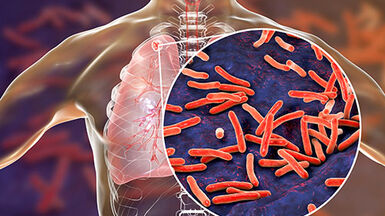Rapid Risk Assessment: Severe respiratory disease associated with a novel coronavirus
New and noteworthy in this update: the retrospective identification of novel coronavirus in biological samples from two fatal cases in Jordan (April 2012) and the results of a joint ECDC/WHO survey which confirms that EU/EEA Member States have an adequate capacity to detect novel coronavirus through their network of national reference laboratories: 18 of 30 in EU/EEA countries are capable of confirming positive screened samples by either ORF1b RT-PCR or other target RT-PCR assays with sequence analysis or whole-genome sequence analysis.
ECDC’s updated risk assessment concludes that there is still no evidence of sustained person-to-person transmission; the current facts still point towards a zoonotic or environmental source with occasional transmission to exposed humans.
Executive summary
Two cases in Jordan have retrospectively been confirmed. These additional cases have increased the geographical area in which transmission of the virus has occurred. The two fatal cases were part of a cluster of 11 patients with respiratory symptoms linked to a hospital. The limited information available about this outbreak does not allow for an assessment of whether human-to-human transmission has occurred or indeed whether the cases in this cluster had the same cause.
The ECDC risk assessment highlights that healthcare workers should be alerted to the possibility of attending to patients who meet specific characteristics which would require an investigation according to the WHO case definition. The new WHO recommendations favour the investigation of patients returning from the Arabian Peninsula or its neighbouring countries, but do not exclude the testing of patients with unexplained pneumonia in the absence of such travel. A specific serological test and seroepidemiological studies are needed to investigate the occurrence of mild and asymptomatic infections. The diagnostic capacity for novel coronavirus is adequate in the EU. This is confirmed by a newly published article in Eurosurveillance on the results of a survey undertaken by ECDC and WHO.
The virus genome is in the public domain and mechanisms for sharing samples and diagnostic methods between countries and laboratories are in place. As of 4 December 2012, a total of nine laboratory-confirmed cases of severe pneumonia caused by the novel coronavirus have been reported to WHO. Five of the nine cases were fatal. Onset of disease was from April to October 2012 and all cases were resident in Saudi Arabia, Qatar or Jordan during the presumed 10 days incubation period. ECDC endorses the WHO travel advice and does not advise any travel or trade restrictions for Saudi Arabia or Qatar







